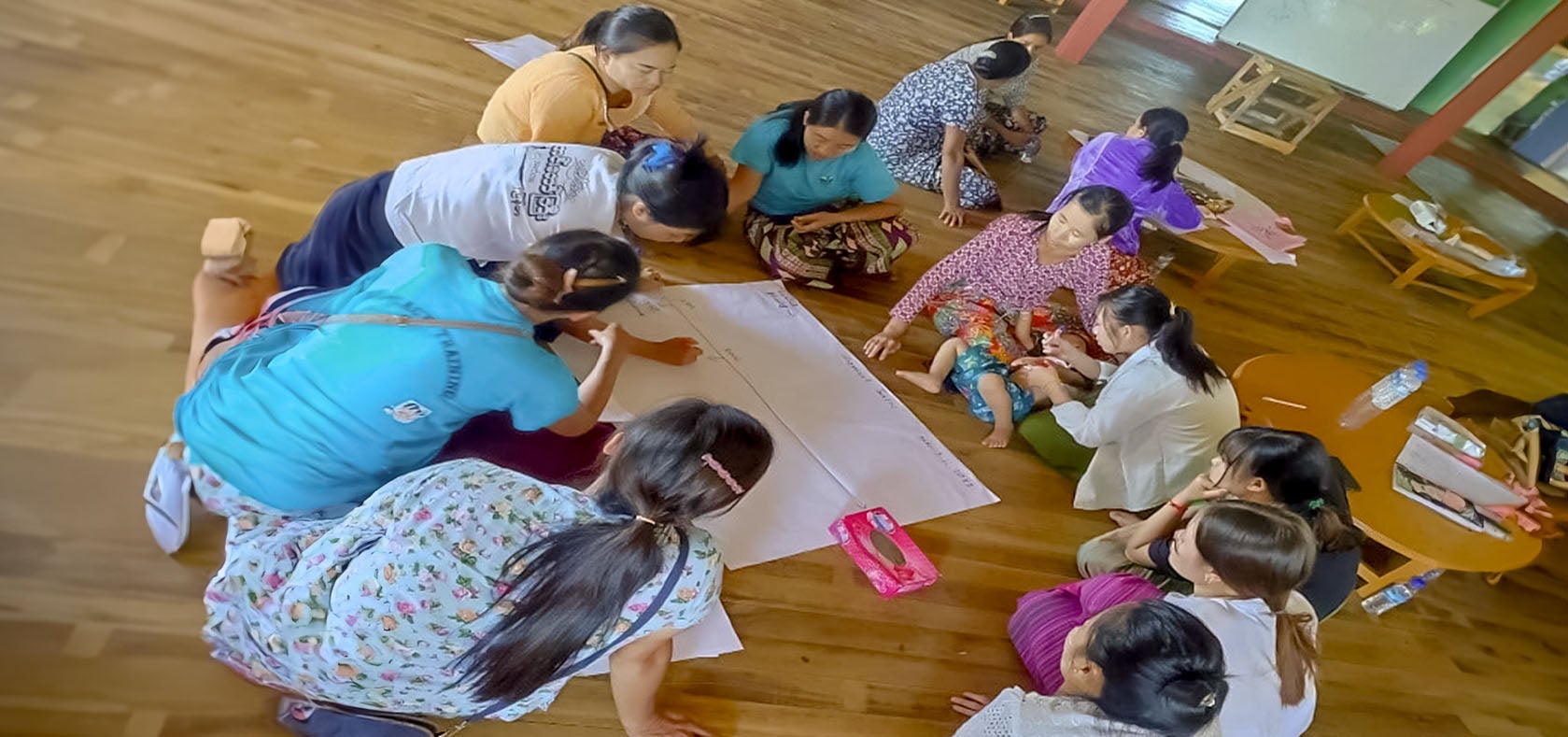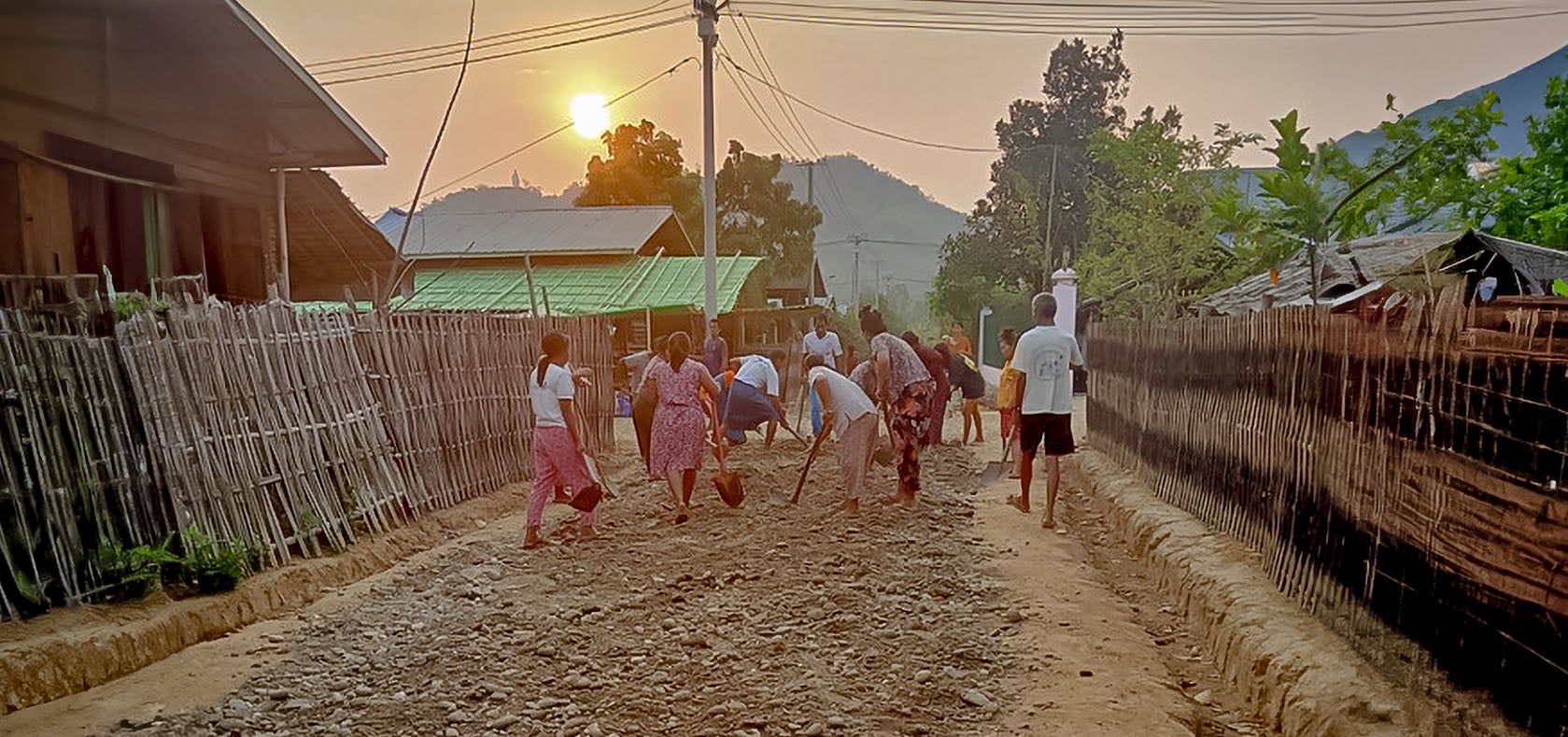From excluded to empowered: Nang’s rise to respected community leader
Date:
Author: Alexandra Peard
Nang*, a 40-year-old woman from Myanmar, has always been a passionate community volunteer, spending all her summers teaching local languages to children in her village. Yet, while she loved this work, Nang really wanted to participate more deeply in the development and day-to-day running of her village. Unfortunately, gendered cultural norms and lack of confidence were holding her back.
“I faced significant challenges engaging with the village community due to my limited knowledge. And there was a prevailing skepticism towards women leaders that stopped people from accepting my suggestions,” Nang said.
Nang felt like there was no place for her voice in community decision-making. She felt insecure about only having received a middle-school education, and excluded from the local governing bodies because she was a woman. But when a local organization, supported by UN Women, began building the capacity of women in the village to lead on humanitarian action, Nang was an enthusiastic participant. And soon both Nang and her community came to realize what she was truly capable of.
The participation and leadership of women is critical to the humanitarian response in Myanmar – as it is in crisis-affected countries around the world – because when women and women’s organizations are included in humanitarian action, the responses are more likely to address the needs of all community members and lead to more sustainable peace and recovery efforts. Amid Myanmar’s ongoing and deteriorating crisis, UN Women works with local women’s rights and women-led organizations, which use their unique knowledge and networks to enable lifesaving support to remote, vulnerable and marginalized people.
In Nang’s village, UN Women’s local partner organization has been helping communities build their resilience against climate and man-made disasters. To start with, Nang helped plan meetings and training sessions, and as she gained more confidence and leadership skills, she began taking the lead in building relationships between donors and the village communities and initiating her own resilience-building projects.


A key turning point for Nang was taking part in the Participatory Vulnerability and Capacity Analysis (PVCA) training, which is a risk analysis process that helps communities understand and analyse their vulnerabilities and capacities to climate change and disaster risks. It also helps identify the links between the different kinds of risk a community faces and the way in which the members of that community interact.
Feeling empowered by the knowledge and skills she gained through the PVCA process, Nang successfully advocated for support and funding from donors and UN agencies to launch a range of important projects in her village. The projects included obtaining agricultural tools and seeds; implementing a cash-for-work program; constructing much-needed drainage in the village to prepare for the rainy season; and securing grants to build a new road to overcome transportation challenges during the rainy season.
“Today, Nang holds a pivotal role in her village. The Village Development Committee elected Nang to become a member, and her suggestions are valued and considered, showcasing the transformative change brought about by the training and other project activities we’ve implemented in her village,” said the representative from UN Women’s local partner, which conducted the PVCA training and other humanitarian capacity building activities.
Nang has emerged as the main coordinator of humanitarian and development projects in her village, leading discussions with civil society and facilitating inter-ethnic dialogue among diverse women's groups.
“Following the training … I now possess the confidence to actively participate in village activities and fearlessly voice my opinions,” she reflected.
“The empowerment I feel has not only enhanced my capabilities but has broken down barriers, allowing me to contribute meaningfully to the betterment of my community.”
*Name has been changed for safety.